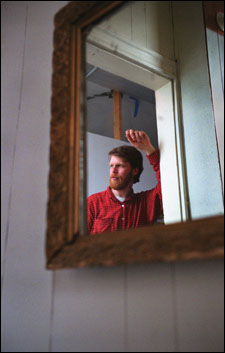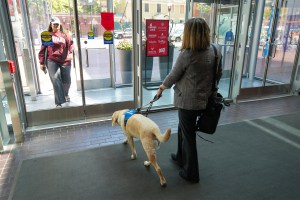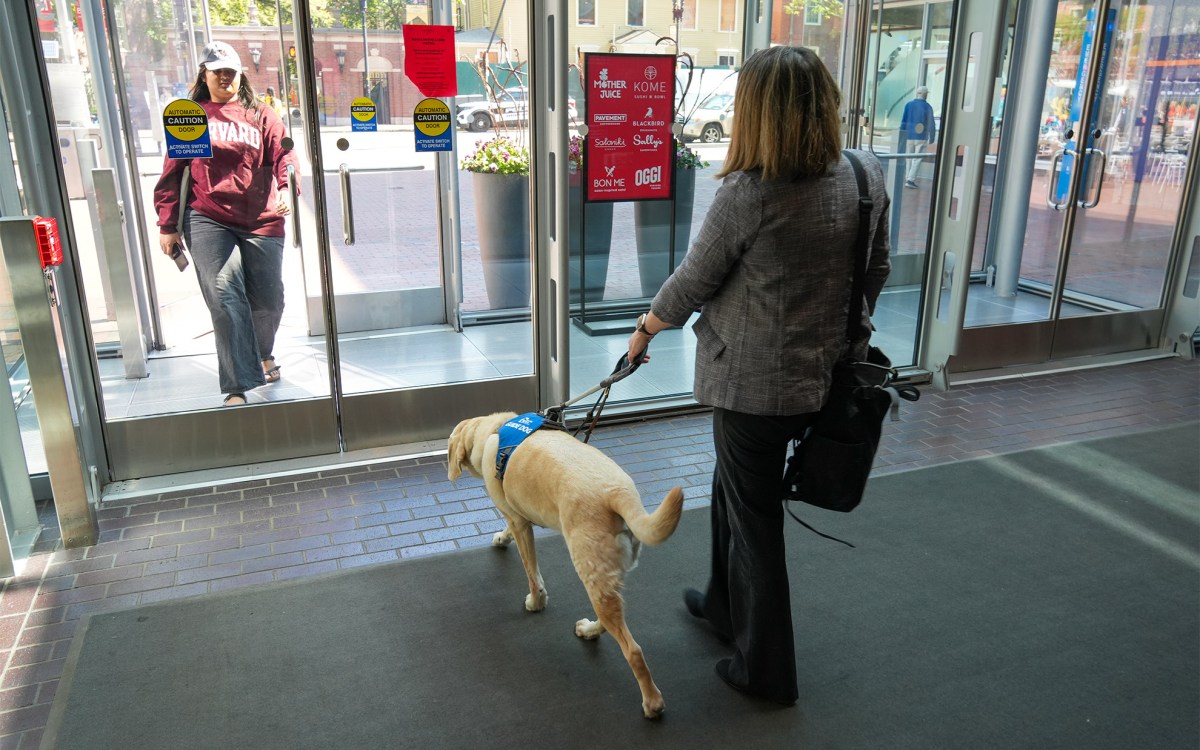The Big Picture:
Robert Zinck, experimental filmmaker

Photo by Stephanie Mitchell
Robert Zinck has nothing against movies that tell stories, movies with characters and dialogue and dramatic arcs and plot points. If people want to make films like that, that’s fine with him. But he has other interests.
For Zinck, a movie camera is a tool with limitless, almost mind-boggling possibilities. Why limit oneself to the familiar vocabulary of shots and transitions designed to keep average viewers oriented to the story when you can do so much more?
An experimental filmmaker who teaches a filmmaking course at the Washington Street Art Center in Somerville, Zinck is on a mission to widen his students’ visual horizons.
“I try to open up their eyes to something different, something else that can be done with a camera other than record a theatrical event, something where the filmmaker becomes as important as the subject of the film.”
At Harvard, Zinck works with a camera as well, but here the subject reigns supreme. At the photographic services department of Widener Library, he documents rare manuscripts and other items, using state-of-the-art digital cameras that produce images so sharp you can see the fibers of the paper. But the equipment he really loves is the used Super-8 movie cameras he buys on eBay.
“There’s a tactile nature to film. You can carry it around with you. And to look at it, all you need is a light source.”
Creating experimental art can be lonely, perplexing work, as Zinck discovered after he graduated from the Massachusetts College of Art with a degree in still photography.
“I was always out there on what I considered a personal edge. My wife couldn’t understand what I was trying to do. I couldn’t always grasp it myself. I wasn’t sure where it was coming from.”
Which is why in his low-key, soft-spoken way, he has become a cheerleader for his students, encouraging them in their own experimental paths, loaning out his personal stock of equipment, and founding the Ciné Salon, where filmmakers can show their work, finished or unfinished, and get helpful feedback.
“Not everyone’s going to understand this work, but there’s so much that can be done by just keeping an open mind to whatever you’re working with and seeing where your efforts lead you.”




